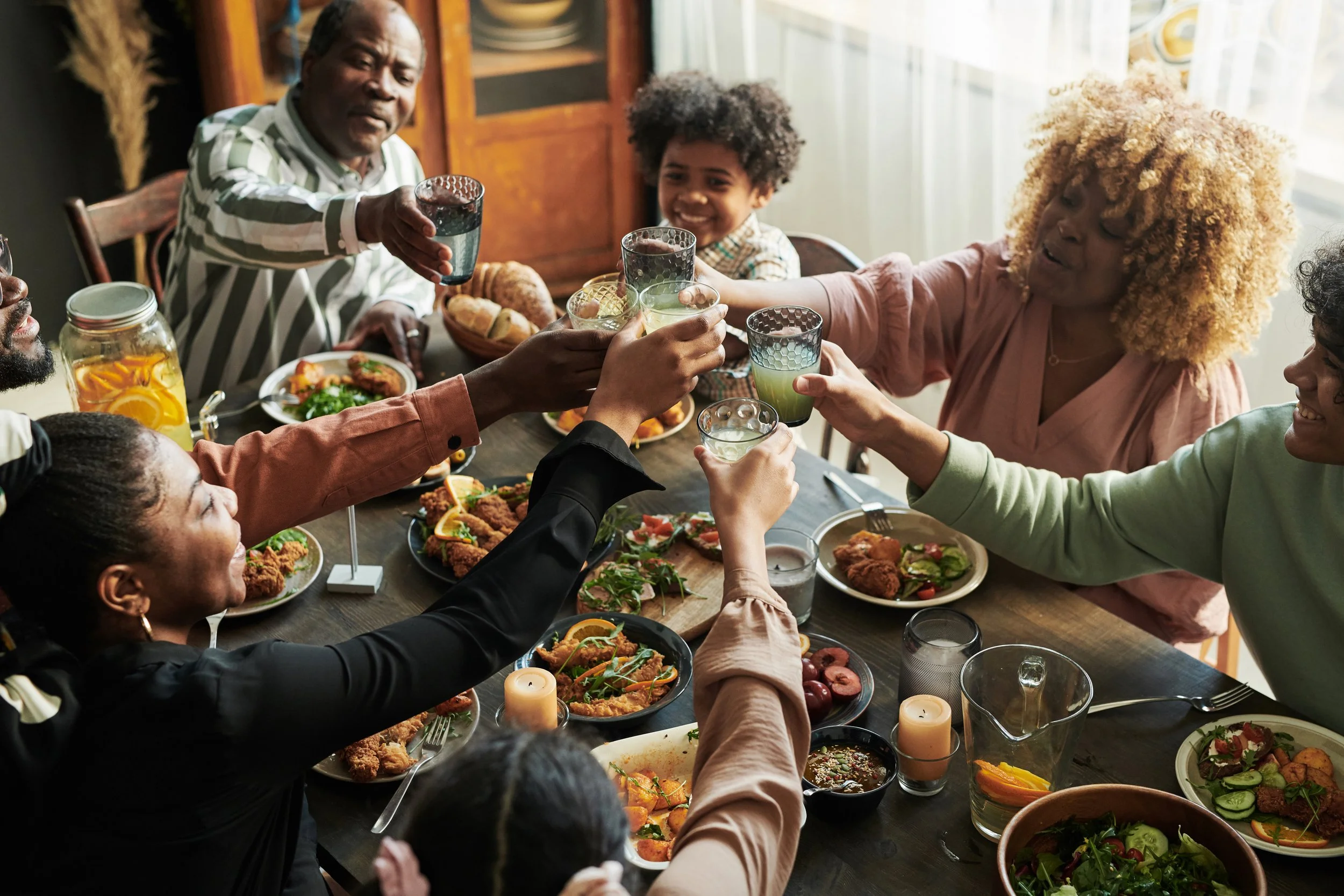The holiday season can bring with it a mix of emotions and unique challenges, especially when it comes to managing substance use. Parties, family gatherings, and even solo traditions can stir up emotions or stress that lead to increased drinking or use of other substances. If you’re someone navigating these pressures, you’re not alone. Let’s explore some mindful approaches to support you through this season.
Understand Your Triggers
Holidays bring out a variety of emotional triggers—some joyful, others more complex. These triggers could be tied to family dynamics, expectations, loneliness, or loss. Reflect on the people, places, and events that may heighten your urge to use substances. Knowing your triggers ahead of time allows you to prepare for them with tools like grounding exercises, and self-care routines that will help you stay grounded or increase insight into those you should avoid.
Set Realistic Goals for Yourself
Set realistic, attainable goals that feel manageable and take into consideration your goals around your relationship with substances. If total abstinence is your goal, create a plan that will support that, such as enlisting accountability partners or having an exit strategy for gatherings that might test your limits. If you’re aiming to cut back, decide in advance what amounts your comfortable with or when you'll call it a night. Setting smaller goals helps make each step achievable, giving you a sense of control rather than rigidity, which often results in overindulgence, rather than intentionality.
Have a Support System in Place
Your support system is invaluable, especially during high-stress times like the holidays. Whether it’s a friend, family member, or recovery group, share your intentions and concerns with those who can provide nonjudgmental support. Having someone you trust on standby—someone who can check in with you during or after events—can reinforce your resolve and make it easier to stick to your goals.
Find Non-Substance-Related Ways to Celebrate
Think about incorporating some new traditions or self-care practices that don’t involve substances. Maybe it’s a morning walk before or after a big meal, a new recipe to try, or a substance-free treat that you love. These practices can help you stay connected to the true meaning of the holiday season and give you something to look forward to that won’t disrupt your progress.
Prepare Responses to Social Pressure
Social situations can often be tricky, especially if friends or family aren’t aware of your goals. Prepare a few polite, but firm, responses if someone offers you a drink or other substances. A simple, “I’m taking it easy this season,” or “I’ve got an early morning,” can be all you need to divert the pressure. Being prepared with something you’re comfortable saying can increase the likelihood that pressures or temptations will not sway you. Remember, you don’t owe anyone an explanation beyond what feels comfortable.
Practice Self-Compassion
No journey is perfect, and if you find yourself encountering setbacks, don’t be too hard on yourself. Recognize that setbacks are a normal part of change and growth. Use these moments as opportunities to reflect on what you could do differently next time and forgive yourself with compassion. Take it one day at a time, and give yourself credit for each positive step forward.
Reach Out for Help if You Need It
The holidays are an emotional time, but they don’t have to disrupt your journey to a healthier relationship with substances. Embrace the season as an opportunity to grow, reflect, and celebrate the positive steps you’re making. You are stronger than you think, and with the right strategies, you can navigate this time with confidence and grace.
If the holiday season feels overwhelming and you’re struggling to stay on track, don’t hesitate to reach out for professional help. Therapists, recovery coaches, and support groups are there to guide you through challenging moments and provide tools to help you succeed.
If you need support navigating your relationship with substances or the challenges of the holiday season, our team of caring therapists would be honored to help you in your journey.
Get Started with Bridger Peaks Counseling Today
Navigating the holidays while managing substance use can be challenging, but you don’t have to do it alone. Our addiction therapists are here to support you with personalized tools and strategies to help you stay on track with your goals. Start your journey toward a healthier, more balanced relationship with substances today. Let’s work together to make this season one of growth and resilience. Follow the steps below to get started:
Meet with one of our professional Bozeman therapists
Learn how our addiction therapy can help you thrive during this holiday season!
Additional Services We Offer in Bozeman & Missoula, MT
At Bridger Peaks Counseling, we’re dedicated to offering a diverse range of mental health services to support your unique needs. Our therapists provide teen counseling, group therapy, Rising Strong workshops, and body image counseling. We also offer specialized care for depression, grief and loss, and online therapy options. Other services include EMDR, postpartum anxiety and depression counseling, and psychiatric care.











